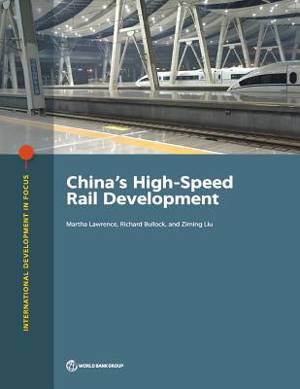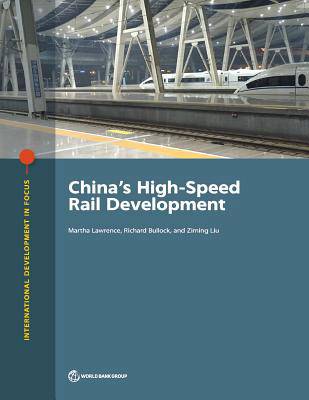
- Afhalen na 1 uur in een winkel met voorraad
- Gratis thuislevering in België vanaf € 30
- Ruim aanbod met 7 miljoen producten
- Afhalen na 1 uur in een winkel met voorraad
- Gratis thuislevering in België vanaf € 30
- Ruim aanbod met 7 miljoen producten
China's High-Speed Rail Development
a green growth framework for mobilizing mining investment
Martha Lawrence, Richard Bullock, Ziming LiuOmschrijving
Over the past decade, China has built 25,000 km of dedicated highspeed railway--more than the rest of the world combined. What can we learn from this remarkable experience? China's High-Speed Rail Development examines the Chinese experience to draw lessons for countries considering investing in high-speed rail.
The report scrutinizes the planning and delivery mechanisms that enabled the rapid construction of the high-speed rail system. It highlights the role of long-term planning, consistent plan execution, and a joint venture structure that ensures active participation of provincial and local governments in project planning and financing.
Traffic on China's high-speed trains has grown to 1.7 billion passengers a year. The study examines the characteristics of the markets for which high-speed rail is competitive in China. It discusses the pricing and service design considerations that go into making high-speed rail services competitive with other modes and factors such as good urban connectivity that make the service attractive to customers.
One of the most remarkable aspects of the Chinese experience is the rapid pace of high-quality construction. The report looks at the role of strong capacity development within and cooperation among China Railway Corporation, rail manufacturers, universities, research institutions, laboratories, and engineering centers that allowed for rapid technological advancement and localization of technology. It describes the project delivery structures and incentives for delivering quality and timely results.
Finally, the report analyzes the financial and economic sustainability of the investment in high-speed rail. It finds that a developing country can price high-speed rail services affordably and still achieve financial viability, but this requires very high passenger density. Economic viability similarly depends on high passenger density.
Specificaties
Betrokkenen
- Auteur(s):
- Uitgeverij:
Inhoud
- Aantal bladzijden:
- 98
- Taal:
- Engels
- Reeks:
Eigenschappen
- Productcode (EAN):
- 9781464814259
- Verschijningsdatum:
- 24/06/2019
- Uitvoering:
- Paperback
- Formaat:
- Trade paperback (VS)
- Afmetingen:
- 216 mm x 279 mm
- Gewicht:
- 335 g

Alleen bij Standaard Boekhandel
Beoordelingen
We publiceren alleen reviews die voldoen aan de voorwaarden voor reviews. Bekijk onze voorwaarden voor reviews.











